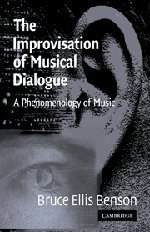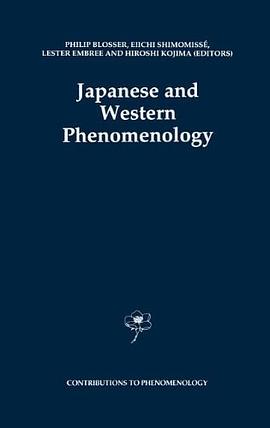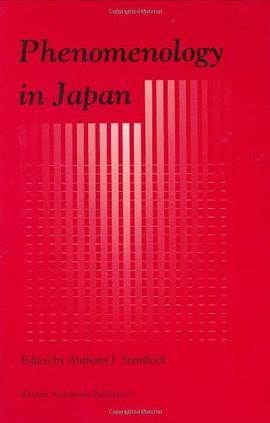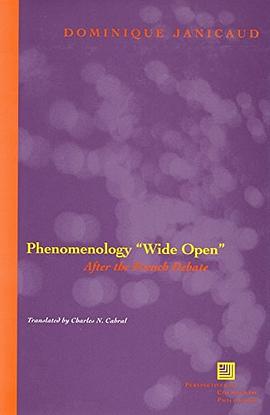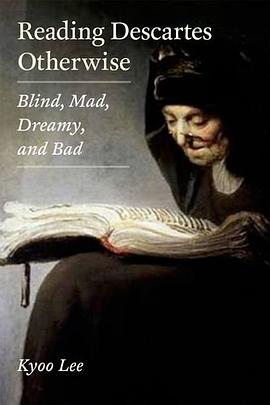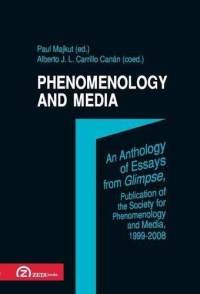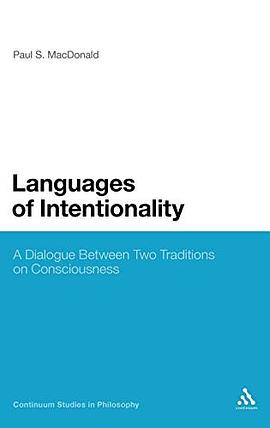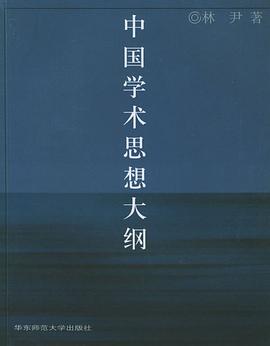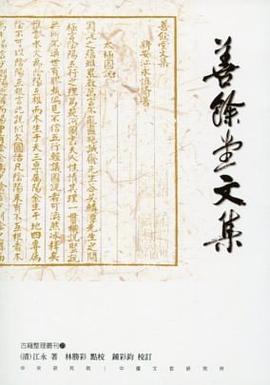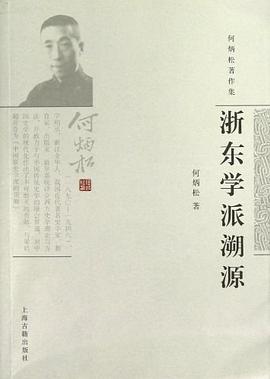Forewords
Sophocles, Oedipus at Colonus, vv. 73—74.
This "presentation" does not describe and report
The destiny of beyng devolves upon the thinkers
The dispensation of beyng in the event toward the beginning
Not only throughout all the world
In regard to Contributions to Philosophy (Of the Event)
I. The first beginning
A. The first beginning
ΑΛΗΘΕΙΑ
1. The first beginning
2. Ἀλήθεια—ἰδέα
3. Errancy
4. Ἀλήθεια (Plato)
5. ἕν out of οὐσία
6. Truth and being for the Greeks (Said and unsaid)
7. ἀ-λήθεια
8. Ἀλήθεια and "space and time"
9. Ἀλήθεια and the first beginning (φῦσις)
10. ἀ-λήθεια
11. In the first beginning
12. Truth and the true
13. Unconcealedness
14. φῦσις—ἀλήθεια—beyng
15. Ἀ-λήθεια and the open
16. Truth and beyng
17. ΑΛΗΘΕΙΑ
18. "Truth" and beyng
19. On the question of truth
20. The moment of consolidation
21. ἀλήθεια—ἰδέα
22. Truth and being
23. ἀγαθόν
24. How ἀλήθεια
25. To say simply
26. How ἀλήθεια
27. ταὐτόν
28. ταὐτόν
29. How νοῦς—λόγος—ψυχή
30. How to come to steadfastness now for the first time
31. One cannot
32. The ground of the transformation of the essence of truth
33. φῦσις—ἀλήθεια
34. φῦσις—the emergence that goes back into itself
35. Ἀλήθεια ὁμοίωσις
36. Beyng and the human being
37. The beyngs of beyng
38. The first beginning
39. The experience of the disentanglement in the first beginning
40. τὸ ἕν—τὸ ταὐτόν—ἀλήθεια
41. The experience of the first beginning
42. The first beginning
43. For the interpretation
44. Beyng is
B. Δόξα
45. From ἀλήθεια—φῦσις to the ἰδέα over δόξα
46. δόξα—gleam, shine, radiance
47. τὰ δοκοῦντα
48. The provenance of δόξα
49. ἀλήθεια—δόξα
50. Parmenides
51. δόξα
52. δόξα and τὰ δοκοῦντα
53. γίνεσθαι—ὄλλυσθαι
C. Anaximander
54. If the ἄπειρον of Anaximander were ἀλήθεια?
55. The transition
56. τὸ πέρας—τὸ ἄπειρον
57. ἀδικία
58. In the dictum of Anaximander
59. The utterance of being
D. Western thinking
Reflexion
Da-seyn
60. Thoughtful thinking and the "concept"
61. Why nothing "comes forth" in "thinking" (as "philosophy")
62. The beginning of Western thinking
63. To think about thinking
64. The beginning of thinking
65. Philosophy—thinking—being
66. Tradition out of the essence of historiality
67. History and historiology
E. Under way toward the first beginning
The preparation for the thinking of beyng in its historicality
So as to remain on the bridge
68. Key words with respect to being
69. To arrive at the domain of the disposition . . .
70. The transition
71. The collapse of Ἀλήθεια out of the global mountain range; the beginning of the destiny of being.
F. The first beginning
72. The time is coming
73. Truth and cognition
74. On the presentation of the first beginning
75. The essence of being in the first beginning
76. Recollection into the first beginning
77. φῦσις and the first beginning
78. What does not yet begin in the first beginning
79. The first beginning and its inceptuality
80. The first beginning as Ἀλήθεια
81. In the first beginning
82. The thinkers of the first beginning
83. The first beginning
84. The interpretation of the first beginning
85. In regard to the interpretation of the first beginning
86. The interpretative recollection
87. Procedure
88. The obvious objection
89. Anaximander and Heraclitus
90. Anaximander and Parmenides
91. Heraclitus and Parmenides
G. The first beginning
92. The first beginning. ἀλήθεια
93. To show the first (beginning)
94. The concealed ineffability of the first beginning
95. The first beginning
96. The first beginning
97. Not all thinkers at the start
98. The first beginning
99. The first beginning
H. The advancement of the first beginning
into the start of metaphysics
100. Ἀλήθεια ὀρθότης
101. The advancement out of the first beginning
102. Presence, constancy, rigidity
103. φῦσις—ἰδέα
II. The resonating
A. The resonating
Vista
104. The resonating
105. The resonating
106. The resonating
107. The history of beyng
108. The resonating
109. The first resonating is that of the passing by
110. The resonating
B. The signs of the transition
The passing by
The in-between of the history of beyng
111. Signs of being in the age of the consummation of metaphysics
112. The errancy of the errant star as the in-between of the passing by
113. The essence of truth in the passing by
114. The unavoidable
115. The demise of metaphysics; the transition
116. The passing by
117. The passing by
118. The passing by
119. The passing by
120. The resonating
121. The overcoming of metaphysics
C. Modernity and the West
122. The demise of metaphysics; the transition to the first beginning
123. God-lessness experienced in terms of the history of beyng
124. The consummation of modernity
125. The passing by
126. The time of the thinking of the history of beyng
127. The will to willing
128. The errancy of machination
129. The essence of "modernity"
130. Modernity and the West
131. "The West" and "Europe"
132. The West and Europe
133. Abandonment by being; the West
134. "The West"
135. The West
136. World-history and the West
137. Certainty, security, establishment, calculation, and order
138. Devastation
139. The inceptuality of the beginning; beyng
D. Metaphysics
The episode
between
the first beginning and the other beginning
The transition
(its signs)
140. Metaphysics
141. "Metaphysics"
142. Beginning and advancement
143. Metaphysics and beyng
144. How and in what sense
145. Metaphysics
146. The demise of metaphysics in the will to willing
147. "Essence" and "being"
148. The end of metaphysics; "world-picture"
149. The consummation of metaphysics
150. Steadfastness within the beginning
151. "Being"
152. "Order" and the forgottenness of being
153. The end of metaphysics; reflection
154. The last remnants of the demise of "philosophy" in the age of the consummation of metaphysics
155. Forgottenness of being
156. Being as machination
157. Being as the non-sensory
158. Metaphysics: Kant and Schelling—Hegel
159. Truth as certainty
160. Biological "life" (Nietzsche)
161. Metaphysics
162. The demise of metaphysics
163. The saying
E. The will to willing
164. "Being" in metaphysics
165. The will to willing
166. The will to willing
III. The difference
167. Beyng
168. Introduction
169. The difference (Outline)
170. The difference and nothingness
171. The difference and the event
172. The difference
173. The difference
174. The difference and the "understanding of being"
175. The differentiation
176. The differentiation and the difference
177. Negativity and no-saying
178. Nothingness
IV. The twisting free
179. Outline
180. The history of beyng
181. The history of beyng
182. The conjuncture of beyng
183. The conjuncture of beyng
V. The event
The vocabulary of its essence
184. The event. The vocabulary of its essence
185. The treasure of the word
VI. The event
186. The event. Outline
187. The appropriating event
188. Event and compassion
189. Beginning and the appropriating event
190. Event and domain of what is proper
191. Event and fate
192. The appropriating event is incursion
193. Event—experience
194. To show—to eventuate
VII. The event and the human being
195. The event and the human being
196. The event—The human being
197. The event
198. The event; the human being as understood with respect to the history of beyng, i.e., with respect to historiality
199. The event and the human being
200. The event and the human being
201. The event and the human being
202. Being and death
203. What cannot be experienced of the beginning
204. The beginning and the human being
205. Beyng and the human being
206. The beginning and the human being
207. The human being and being
208. Being and the human being
209. Beyng and the human being
210. Beyng and the human being—The simple experience
211. Being and the human being
VIII. Da-seyn
212. Da-sein. Outline
213. Da-seyn
214. Da-sein
215. Da-sein
216. Da-sein
217. All beyng is Da-seyn
218. "Dasein" (history of the word)
219. Da and Da-sein
220. The clearing and its semblant emptiness
221. The simple and the desolate
222. In Da-sein
223. Da-sein
224. Beyng—as Da-seyn
225. The temporal domain of godlessness with respect to the history of beyng (experienced godlessness)
226. Da-sein illuminates
227. Da-sein and "openness"
A. The human being as understood with respect to the history of beyng
and
Da-seyn (steadfastness)
228. Steadfastness
229. The nobility of indigence
230. Steadfastness
231. Steadfastness in Da-sein
232. Knowledge
233. The event and historial humanity
234. The nobility of humans and their indigence in the history of beyng
235. The event and the human being
236. The open realm of concealment
237. Steadfastness and the clearing of the "there"
238. The incomparable
B. Da-seyn
Time-space
Da-sein and "reflexion"
Steadfastness and disposition
239. "Reflexion"
240. Da-sein—"space"
C. Disposition and Da-sein
The pain of the question-worthiness of beyng
241. Disposition
242. "Disposition"
243. The disposition of thinking is the voice of beyng
244. Downgoing and its disposition
245. Da-sein and thanking
246. The basic dispositions of the history of beyng
247. The basic dispositions of the history of beyng
248. Predisposition
249. Voice, disposition, "feelings"
IX. The other beginning
250. In what does the essential unity of event and beginning dwell?
251. The counter-turn in the event and the beginning
252. The beginning
253. The beginning
254. The last god
X. Directives to the event
A. The enduring of the difference (distinction)
Experience as the pain "of" the departure
255. Pain—experience—knowledge
256. Experience
257. The pain of the enduring
258. Enduring as thanking
259. The enduring of the difference
260. Inceptual thinking is abyssal thinking
261. Beyng is experienced
262. The question: In what way?
263. The thinking of the history of beyng says beyng
264. Enduring and questioning
The question-worthiness of beyng
265. The essence of experience
The question-worthiness of beyng
266. Founding and enduring
B. The thinking of the history of beyng
The enduring of the difference (distinction)
The care of the abyss
The timber trail
Thinking and the word
267. The thinking of the history of beyng
268. The thinking of the history of beyng
269. The thinking of the history of beyng in the transition
270. The thinking of the history of beyng
271. The thinking of the history of beyng. The thoughtful word
272. The thinking of the history of beyng
273. The event
274. Thinking
275. The discrepancy in the priority of presentation
276. The beginning—inexperience
277. The inconsolable departure
278. The thinking of the history of beyng; the concept
279. Inceptual thinking
280. The enduring of the difference
281. Thinking as enduring
282. The enduring
283. The gainsaying in the saying of the event
284. The timber trail
285. Beginning and immediacy
286. Inceptual thinking in its origination out of metaphysics
287. If being bends toward itself the track of mankind
288. The thinking of beyng
289. Thinking and words
290. Beyng—thinking
C. Toward a first elucidation of the basic words
"Truth" (With regard to: The saying of the first beginning)
The "essence" and the "essential occurrence"
History and historiality
a. The "essence" and the "essential occurrence"
291. Beyng and essence
b. History
292. Terminology
293. History is historiality
294. The essence of historiality
295. History
296. History
297. Overcoming, transition, beginning
298. The history of being
299. Space and time
300. History and historiology
301. Going under
XI. The thinking of the history of beyng
(Thinking and poetizing)
A. The experience of that which is worthy of questioning
The leap
The confrontation
The clarification of action
The knowledge of thinking
302. Guiding notions
303. The thinking of the history of beyng is the inceptual experience of the twisting free of beyng
304. The first step of inceptual thinking
305. The knowledge of thinking
306. How the thoughtful thinking of beyng is a thanking
307. The thinking of the history of beyng is the non-transitory departure of beyng
308. The thinking of beyng
309. The all-arousing, constant experience of the thinking of the history of beyng
310. Thoughtful grounding as exposition of the ground. Grounding and experience. To remain in the most proper law of thinking
311. The thoughtful assertion
312. The thinking of the history of beyng with regard to the beginning
313. Thoughtful saying and its claim
314. The word
315. The leap
316. The clarification of what is to be done
317. "Critique"
B. The beginning and heedfulness
318. The experience of the beginning
319. Experience
320. Markings and heedfulness
321. On heedfulness
322. On heedfulness
323. Heedfulness
324. Heedfulness
325. Forgottenness of being
326. The forgottenness of being
327. The forgottenness of being; heedfulness
328. Being and beings
329. Beginning and being
330. The decision
C. The saying of the beginning
331. The word, metaphysics, and the beginning
332. The word of inceptual thinking
333. The thinking of the history of beyng and the demand for univocity, non-contradiction, non-circularity, and comprehensibility
334. Within the first attempt at the thinking of the history of beyng
335. The saying of the beginning
336. The saying of the beginning
337. The saying of the beginning
338. The inceptual claim of the beginning
339. Inceptual thinking
340. Beginning as ἀρχή; inceptual thinking
341. Beginning and recollection
342. The saying of the beginning
D. Thinking and knowing
Thinking and poetizing
343. Poetizing—Thinking
344. To be greeted; Da-sein
345. The transition
346. Poetizing and thinking
347. Thinking and poetizing
348. Silence and saying
349. Thanking
350. Essential thinking
351. Essential thinking
352. Thinking and poetizing
353. Admission and steadfastness
354. Admission and detachment
355. The shyness in the beginning
356. "Thinking"
357. Thanking and silence
358. Thinking and thanking
359. Thanking and beyng
360. Appropriating event and thanking
361. Thinking
362. Thinking and cognition
363. Thinking
E. Poetizing and thinking
364. Poetizing and thinking
365. Thinking and poetizing
F. The poet and the thinker
366. Poetizing and thinking
367. The truth of Hölderlin's poetry
368. The first and most extreme separation of thinking and poetizing
369. Thinking and poetizing
370. Poetizing and thinking
371. Poetizing and thinking
372. The thanking of the renunciation is thoughtful thanking
373. With respect to the history of beyng, the future essence of the poet and the thinker
374. Poetizing and thinking in their relation to the word
375. One thinker and another
G. "Commentary" and "interpretation"
a. Thinking with respect to Hölderlin. "Interpretation"
376. Hölderlin
377. The interpretation of Hölderlin
378. "Interpretations" of "Hölderlin"
379. Thinking about Hölderlin
380. The interpretation of Hölderlin within the other thinking
b. "Commentary" and "interpretation"
381. "Commentary"
382. Commentary and interpretation
383. Comments
384. The comments
385. Comments
386. The interpretation
· · · · · · (
收起)



